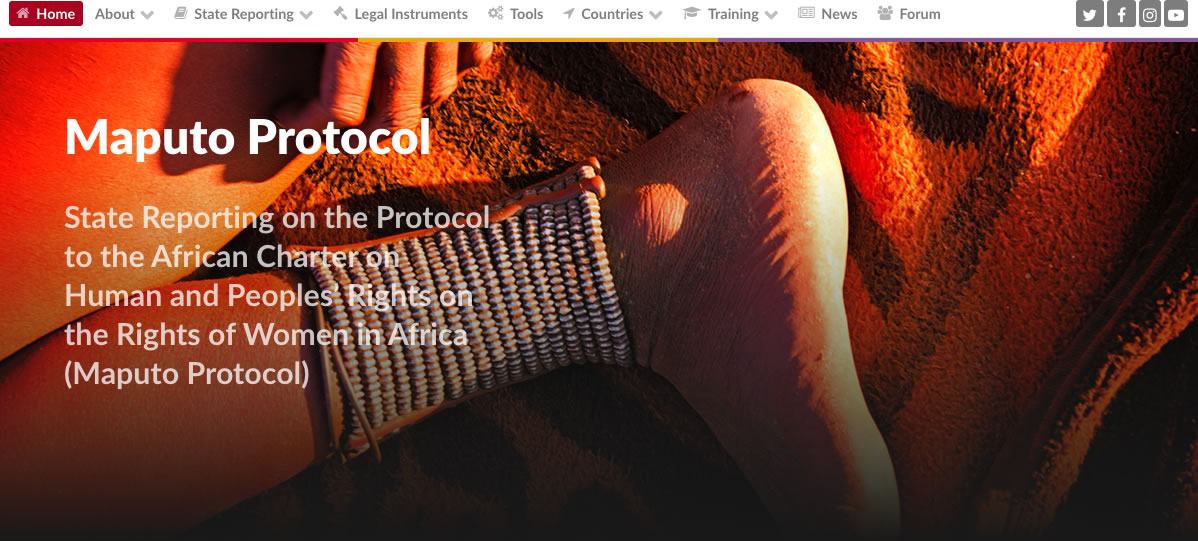The state reporting process is a fundamental component in monitoring the implementation of a treaty or human rights instrument. African states that have ratified the Maputo Protocol have an obligation to report to the African Commission on Human and Peoples’ Rights (African Commission) Article 62 of the African Charter and Article 26 (1) of the Maputo Protocol obligates states parties to submit state reports every two years indicating legislative and other measures undertaken towards the full realisation of the rights enshrined in the Maputo Protocol.
State reporting serves a number of important functions including but not limited to: stock-taking of measures undertaken by States parties towards compliance with their obligations under the Maputo Protocol; identifying problems and obstacles to the full implementation of the Maputo Protocol and providing an opportunity for constructive engagement with the African Commission in order that States parties may benefit from their concrete recommendations.
Without an enforcement mechanism, the state reporting process is the strongest means through which the African Commission can monitor state compliance with regional treaty obligations and to engage in constructive dialogue with states towards recommendations for concrete actions at the national level to domesticate the Maputo Protocol.
States parties that have ratified the African Charter as well as the Maputo Protocol have given their consent to submit one state report every two years to the African Commission outlining the human rights situation in their countries. The report must contain comprehensive information on the legislative, policy and other measures the state party has taken to ensure that all persons in its country enjoy the rights guaranteed in the instruments.
Importantly this one report must be in two parts. The report must have a Part A that reports on the rights in the African Charter and then a Part B that deals with the rights in the Maputo Protocol.


